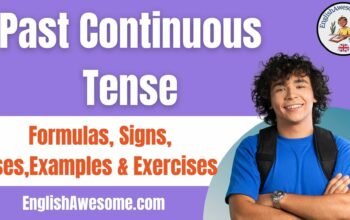Present Perfect Continuous Tense is the last of four present Tenses. Having the Present Perfect tense as the foundation, present perfect continuous tense has some of its characteristics but still serves a whole new purpose.
⏩ Sign Up to Get Bonus
If you are wondering why present perfect continuous tense is different from present perfect tense and how to correctly use it then you should definitely read our article.
Let's learn about with Englishtivi right now
Definition of Present Perfect Continuous Tense
Present Perfect Continuous Tense is a tense that is used to indicate an action that started in the past but continues in the present and is likely to continue in the future. The action may have ended in the past, but its result still has an effect at the present time.
How do we use the Present Perfect Continuous Tense?
We use the Present Perfect Continuous Tense for three different reasons:
To talk about an action that happened in the past, but is still continuing in the present.
Examples:
+ John has been doing his housework for two hours now.
+ Quinn has been working in this office since 2006.
+ They have been waiting for the concert tickets all day.
To talk about an action that has ended in the past, but its result still has an effect at the present time.
Examples:
+ I can’t feel my legs anymore, I have been walking for 3 hours.
+ It has been raining heavily.
+ John is sleeping right now, he has been typing his essay since yesterday.
To describe a repeated activity which began in the past and is still continuing.
Examples:
+ Helen has been practicing ballet on and off for four years.
+ Kim has been visiting her grandparents every month since 2018.
Present Perfect Continuous Tense Form

Affirmative Sentences
| S + have/has + been + V_ing |
Note: Depending on the subject, we will have to change have into has
How to know when to use have and when to use has:
| I/ You/ We/ They | He/ She/ It |
| Have | Has |
Examples:
+ I have been writing this novel for 3 years.
+ Jake has been talking to Julia for a while now.
+ They have been working in this factory since 2002.
Negative Sentences
| S + have/has + not + been + V_ing |
Note: have not = haven’t
has not = hasn’t
Examples:
+ We haven’t been listening to these songs for so long.
+ Mike hasn’t been doing his homework since third grade.
+ Rose hasn’t been waiting here for an hour.
Interrogative Sentences
| Have/Has + S + been + V_ing? |
Answer:
| (+) Yes, S + have/has | (-) No, S + have/has + not or haven’t/hasn’t. |
Examples:
+ Have you been walking around the house?
+ Has Oliver been staring at his sister all this time?
+ Has Timothy been watching the TV?
Negative Interrogative Sentences
There are two ways to write negative interrogative sentences:
- If you use have not/has not: Have/Has + S + not + been + V_ing?
- If you use haven’t/hasn’t: Haven’t/Hasn’t + S + been + V_ing?
Examples:
+ Have they not been working?
+ Hasn’t Kyle been playing with his toys?
+ Haven’t you been typing this letter?
Signal words for the Present Perfect Continuous Tense
There are three simple signs for you to recognize the present perfect continuous tense:
- For: “For” is used with a period that doesn’t have to be a specific point in time to describe a duration (for a week, for a whole day, for three years,..).
Examples:
+ I have been eating at this restaurant for five years.
+ We have been working on this project for a week.
+ Mike has been smashing rock for a whole day.
- Since: “Since” is used with a specific point in time, opposite with “For” (since 1980, sine Monday, since you left,…).
Examples:
+ They have been walking together since 1990.
+ Jake has been taking his family picture since Monday.
+ Peach has been making food since yesterday.
- All: “All” is used with a period of time but usually way more general than “For”. (All day long, all morning, all afternoon,…).
Examples:
+ I have been dancing all morning.
+ We have been baking bread all day.
+ Linda has been searching for her cat all afternoon.
Exceptions in Spelling when Adding “ing”
Usually, when verb turns to verb_ing, most of the verb only need to add the _ing but there are some exceptions that we have to remember:
- If the verb ends with a vowel(u,e,o,a,i) before a consonant, we double up the last consonant then add _ing. (swimming, stopping,…)
- If the verb is a two-syllable verb with stress on the first syllable and ends with a vowel(u,e,o,a,i) before a consonant then we don’t double the last words (offering, suffering,…)
- If the verb ends with w, x or y then we only add _ing (playing, waxing,…)
- If the verb ends with e, we remove the “e” then add _ing (dance > dancing, taste -> tasting,…)
- If the verb ends with ie, we turn the “ie” into “y”: then add _ing (lie -> lying, die -> dying,..).
- If the verb ends in a stressed vowel with “r” as the last letter then we double the “r” and add _ing. (referring,…)
Present Perfect Continuous Tense Exercises with Answers
Exercise of Present Perfect Continuous Tense
Exercise 1: Fill in the blanks with have or has.
- I ____ been dancing all night.
- She _____ been running for two hours.
- Jake ______been cooking his lunch.
- We _____ been raising our banana tree for three weeks.
- Mary _____been learning Russian since January.
- Zoe ____been testing her machine all evening.
- You ____been preparing the speech for an hour.
- They _____been stealing our goods since the 1990s.
- John _____been lying about his jobs since 2005.
- May _____been doing her homework.
Exercise 2: Put the verbs into the correct form
- Joey ____(have not/play) her piano since 2005.
- I _____(have/play) badminton for three years.
- He ______(have not/visit) me.
- Taylor _______(have/study) at Harvard for 2 years.
- Lily ______(have/sleep) for an hour so we can have some rest now.
- They ______(have/eat) a lot recently.
- Paul _____(have not/argue) with his wife all this morning.
- Vi _____(have/suffer) from insomnia for three months.
- Jane_______(have/ make) Barbie dolls since 2005.
- Max is very tired right now. He____(have/ practice) piano all day.
Exercise 3: Change the verbs into the correct form with yes/no question and Wh_ question.
- __________(it/snow)?
- _________(we/talk) nonsense all this time?
- _________(Mai/plan) her trip all afternoon?
- How long_______(you/watch) this series?
- Where_______(Chelsea/work)?
- How long_____(they/wait) for the store to open.
- _________(the dog/play) in the backyard?
- What______(Jim/stare) at all this time?
- Where________(she/get) the medicine from?
- __________(you/try) to do that move?
Answers of Present Perfect Continuous Tense
Exercise 1:
| 1) have | 2) has | 3) has | 4) have | 5) has |
| 6) has | 7) have | 8) have | 9) has | 10) has |
Exercise 2:
| 1) hasn’t been playing | 2) have been playing |
| 3) hasn’t been visiting | 4) has been studying |
| 5) has been sleeping | 6) have been eating |
| 7) hasn’t been arguing | 8) has been suffering |
| 9) has been making | 10) has been practicing |
Exercise 3:
| 1) Has it been snowing? | 2) Have we been talking |
| 3) Has Mai been planning | 4) have you been watching |
| 5) has Chelsea been working? | 6) have they been waiting |
| 7) Has the dog been playing | 8) has Jim been stating |
| 9) has she been getting | 10) Have you been trying |
Present Perfect Continuous Tense Exercises Pdf, Doc
Present Perfect Continuous Tense Exercises Pdf, Doc is a set of exercises that are designed to help you to help students improve their ability to form, understand, and use the present perfect continuous tense.
Conclusion
Even though the Present Perfect Continuous Tense is the last tense in the present tense, we should not underestimate it since this tense has many different uses and can be used quite often in conversation. English learners should try to understand this tense the most as it can easily be mistaken or misused with the Present Perfect tense.





